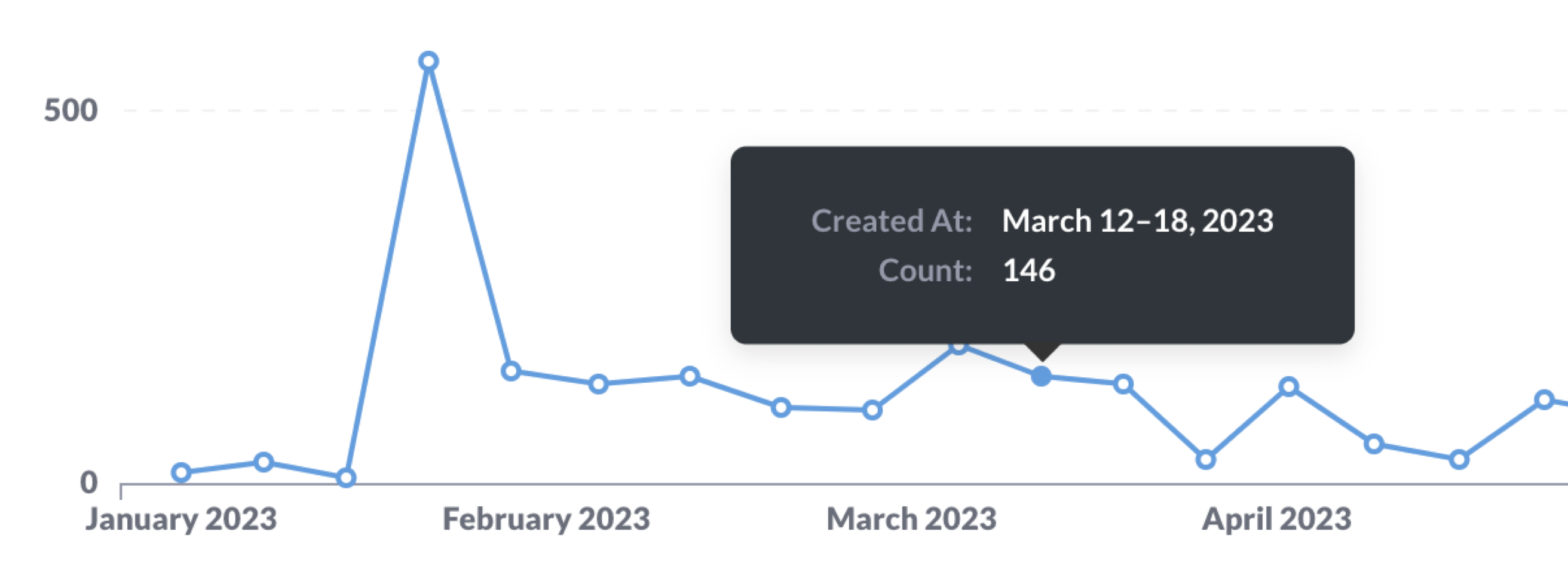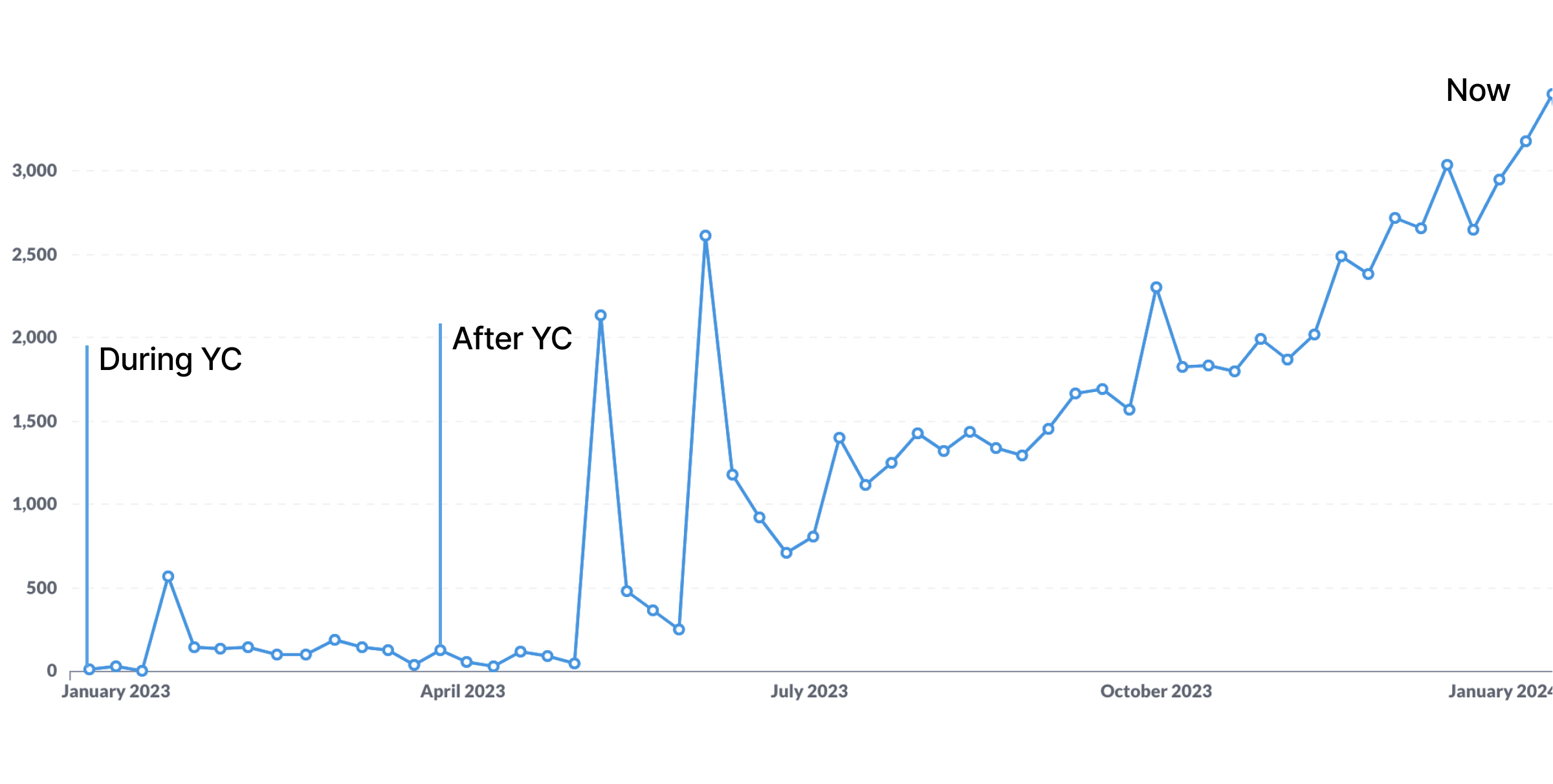How is life post YC?
One of the things I was most curious about during our batch was how life would be after Demo Day.
I compiled some of the learnings from my own experience and asked other Y Combinator friends from various batches, so you can get a feel of what happens after YC.
“Many founders look back at their YC journey as the fastest and most intense period of their startup journey, which is ironic because you usually attend YC in the first 1 year (when you are small, confused, and have no repeatable processes). A startup should only ever get faster - adding more employees should add output/velocity, adding another feature should unlock more customers, more time means better processes. YC gives founders a reason to create this DNA inside their company, and then after the batch it’s up to the founder to continue the mindset.”
— Paul Copplestone, Supabase (S20)
1. It doesn't get easier
We joined YC for the Winter 2023 batch, which means that our program went from January until April 2023.
During that time, we used to have around 146 new sign ups every week, which seemed like a lot for us to handle as a small team of 3 people.

After Demo Day was over and we were done with fundraising, we kept pushing really hard.
Today, we have around 3,464 new sign ups every week.

One of the reasons why we were able to grow is because of an immense sense of urgency.
“The hardest thing is to keep momentum, especially with a growing team. During YC, you have to deliver on a weekly cadence. Nobody wants to be the bad performer in their group. After YC, there is nobody providing that pressure. So you need to find other ways to generate momentum. Some companies adopted regular Launch Weeks, we ship bi-weekly at Raycast. Right after YC, we wrote monthly focus documents and assigned projects to everybody. This shared ownership helps to work with agency.”
— Thomas Mann, Raycast (W20)
I thought that after YC, things would calm down, but it was quite the opposite.
So, if you think the Demo Day goal is hard, wait until you see the Series A goal.
“You need to stay focused on your current ICP, and center everything around (e.g., pricing, messaging, sales, engineering, marketing) while still remembering your long-term vision, and think BIG.”
— Vlad Matsiiako, Infisical (W23)
2. Some of your friends’ startups will pivot or die
YC is a sprint towards Demo Day, but building your company is a marathon.
“I used to tell my wife, "oh after X (round, customer, product launch, whatever) I'll have more time, things will be less busy, etc." As you progress with the companies, the challenges change, but the urgency and the momentum matter even more. You now have more customers, more revenue, more investors, so the stakes are higher and the work is still plentiful.”
— Tom Hacohen, Svix (W21)
During that marathon, you'll see some of your friends pivoting to a completely new space, and that's a good thing. It means that they were able to identify problems early and change quickly.
You'll also see some of your friends disappearing - some because their business is booming, but others because it's not.
It's always a great idea to help and support others, that's what this community is all about, but make sure to put the oxygen mask on yourself first.
“It’s ok to feel like you don’t have everything figured out or need to pivot after the batch. Many companies did, including us. We didn’t get into what we’re doing now until after the batch after ours ended.”
3. Create your own little bubble
YC does an amazing job of separating people into different groups and sections. This is great because you meet companies that are at a similar stage and serving similar customers.
“Try to stick to the two-week goals, like in group office hours, to keep the pace high for as long as possible. Funnily enough, I always wonder what our group partners would think of many of the decisions we make after batch. It helps me think about whether it's a good idea or not. It's like this: If I were to book an office hour with Tom today and tell him about our idea/plan, what would his reaction be? And I can literally see his face and feedback in front of my eyes.”
— Philip Isik, Tiptap (S23)
Once YC ends, they recommend you to keep doing office hours with your section. In our case, most of the startups in our section ended up pivoting, having founder breakups, or not growing at the same pace, which makes it hard to relate and help each other.
So we ended up creating a shared Slack channel called #founder-therapy with really close founder friends, where we give each other updates, ask questions, and support each other.
More than an accountability group, you need a safe space to share the challenges of being a founder.
“What helped us maintain the pace was to religiously continue with our two week goals and sync monthly with another company from the batch that was close to us.”
— Lucas da Costa, Briefer (S23)
4. Being in SF is as important during YC as post YC
Many people come to San Francisco during the batch because of the in-person experience.
I was one of them. After living in Los Angeles for 8 years, I packed my things and rented an Airbnb to stay only for 3 months with my wife and 1-year-old daughter.
Once Demo Day was over, we debated if it was worth it to stay. We were paying 2x as much here for 1/2 of the size and comfort.
Still, we made a decision to stay.
And the main reason is to simply increase our odds of success.
Seibel and Dalton recorded a video on “Does Your Startup Need To Be In San Francisco?”, so I won't go too deep on this subject, but you should definitely consider staying after the batch.
Of course, there are exceptions. Every team is different, and some companies are building products for a specific market, so they don't need to be here.
How about you?
If you've been through YC, what have you learned after the batch? What advice would you give?
If you haven't been through YC (yet), what are other things you are curious about?